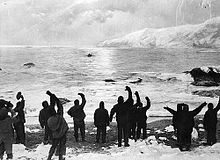Do Charismatic People make Better Leaders?
By Culture Shaper Vanessa O’Shea
I think there’s an assumption in our society that the most powerful leaders are charismatic ones. Consider Richard Branson, Martin Luther King, Bill Clinton, Tony Blair and a more recently elected politician across the pond….
The trait that often appears in a charismatic person is extroversion.
Extroverts
Extroverts are energised by external stimulation, so being around people. They also like to think aloud and talk before they think. They love to make decisions in real time, sound boarding off others. They tend to dominate the air space at meetings, talking more and with expression and conviction. Those that talk with energy and conviction gain attention, power, and consequently, can have the most powerful voice. And people fall for them.
Introverts
Introverts however, are energised by their internal world. They love to gather their thoughts and make decisions in their heads, before sharing them. As these are so considered, they are often quality thoughts. They are drained by external stimulation, so like to work in quiet spaces, preferably by themselves.
Jim Collins study, in his book, Good to Great found that nearly all off the CEO’S of companies that progressed from good to great were introverts. They put their own needs after those of the organisation. The outcome of this approach is that the organisation continues to thrive long after they had been and gone. Thus avoiding the danger of a company falling over once a ‘charismatic’ leader has left.
How about Elon Musk, Bill Gates, Ghandi and Rosa Parks. These people were/are incredibly successful in their field. To a various extent, they are and have changed the course of history. And they are all introverts.
I think therefore, that being charismatic, where this is seen as extroversion, doesn’t necessarily make you a good leader. After all, having the most powerful voice doesn’t mean that you have anything of real content to say.
Another Great
I heard Dame Katherine Grainger, our most decorated female Olympian speak today. She talked about the importance of having people who are different to her in her team. She said that the introverts, whether they had been those who ensured meeting actions were followed up, or sat behind her in the boat, had been essential to her achieving her dreams.
Her message was clear; that we need both the contribution of both introverts and extroverts if we are going to see our purposes fulfilled.
Finally, here’s a few tips to encourage better Introvert/Extrovert working:
Three suggestions for introverts:
Ask for the agenda and prepare your ideas and suggestions on paper.
At networking events (most dreaded by introverts) plan some questions to help you to break in or start a conversation.
Allow yourself in stressful times to have time and space to be by yourself as this is how you will recharge.
Three suggestions for extroverts:
Send out the agenda and any other information for meetings, at least 2 days before the meeting itself.
If you are in charge of a meeting and you need to have an unprepared brain storming session (also dreaded by introverts) allow 5 minutes for the team to think and jot down their ideas before the group comes together. Then allow everyone to speak.
If you ask an introvert a question, give them time to answer, even to go away and come back to you. You will most likely find that their answer or ideas will be worth waiting for.

